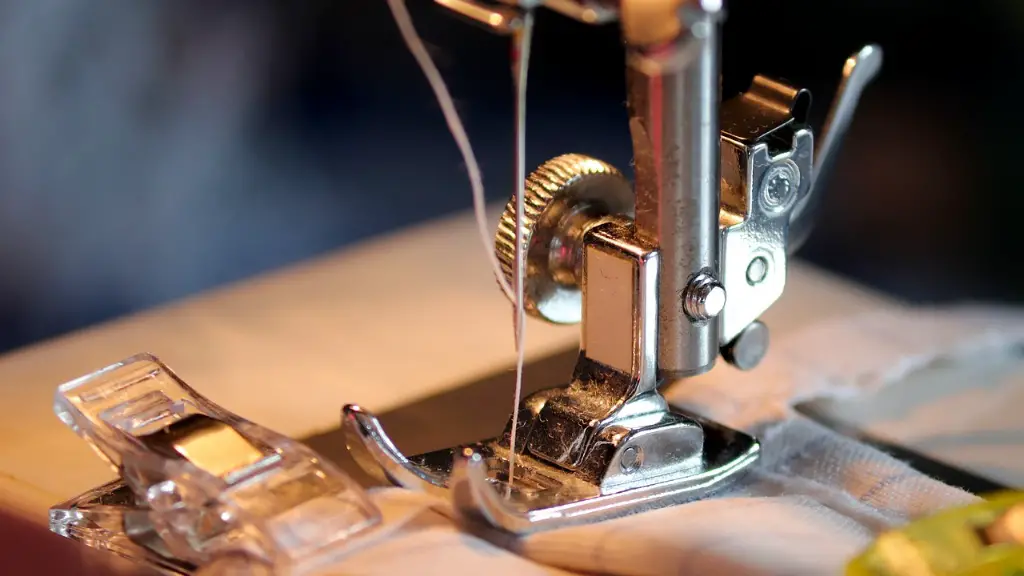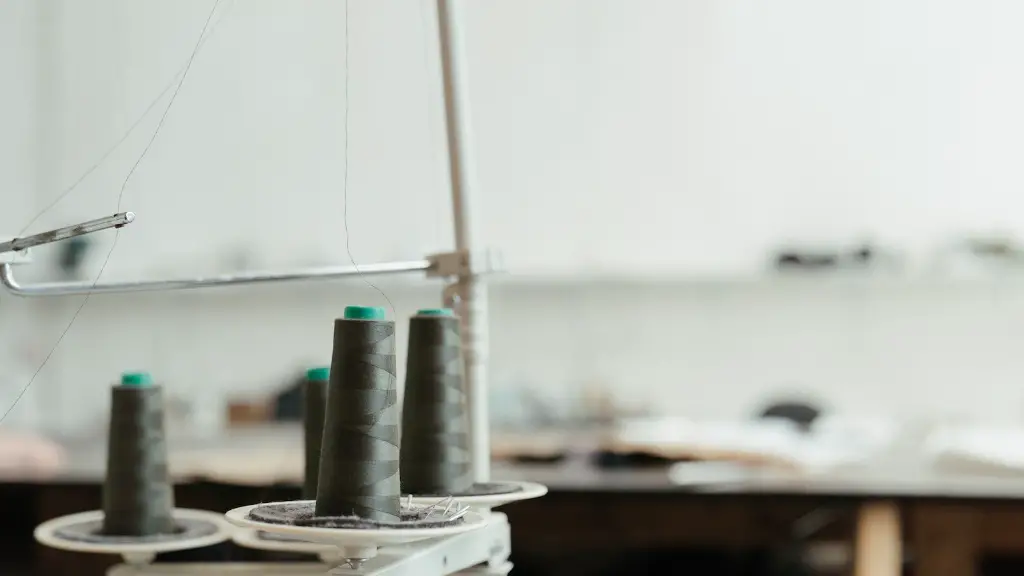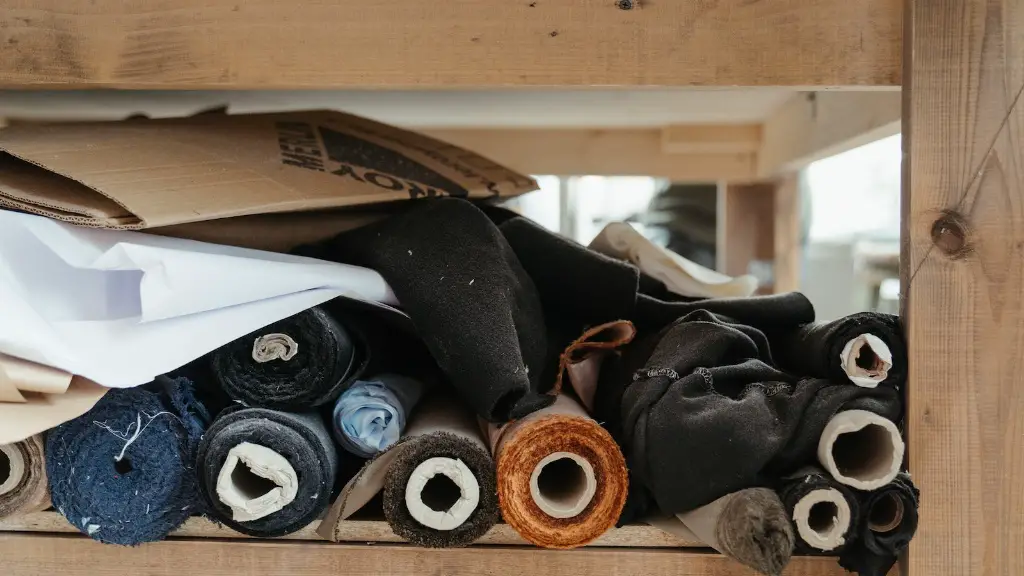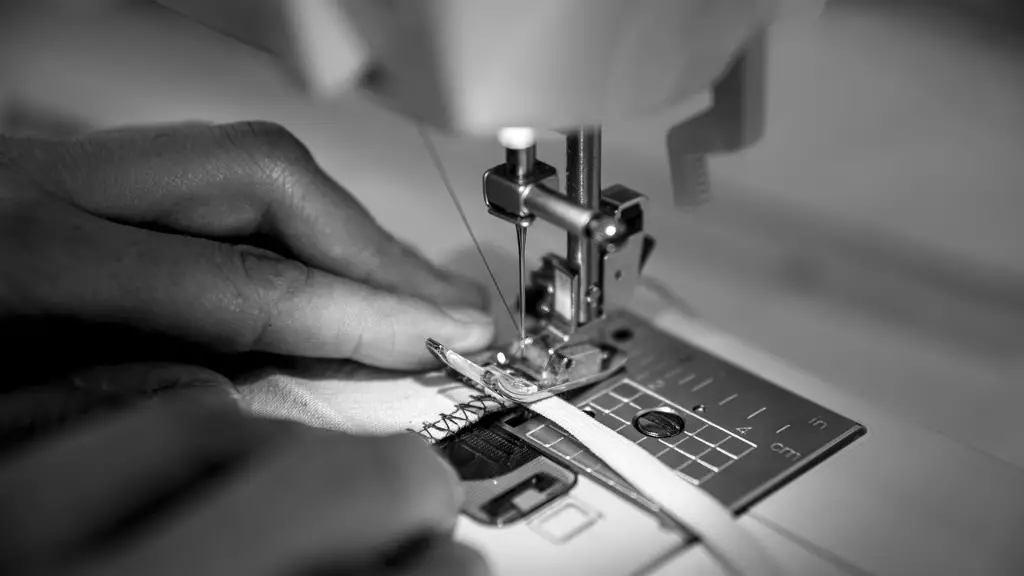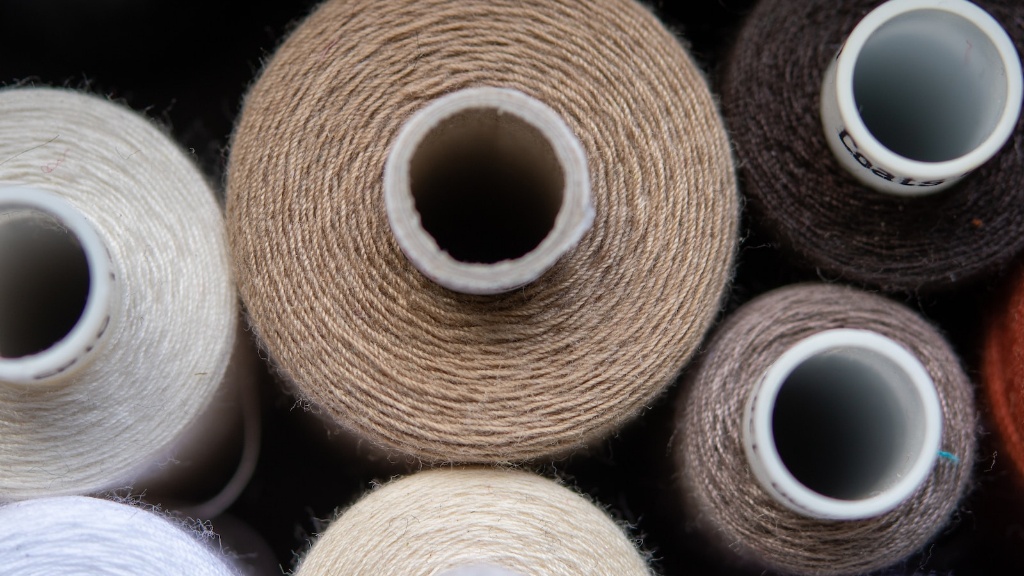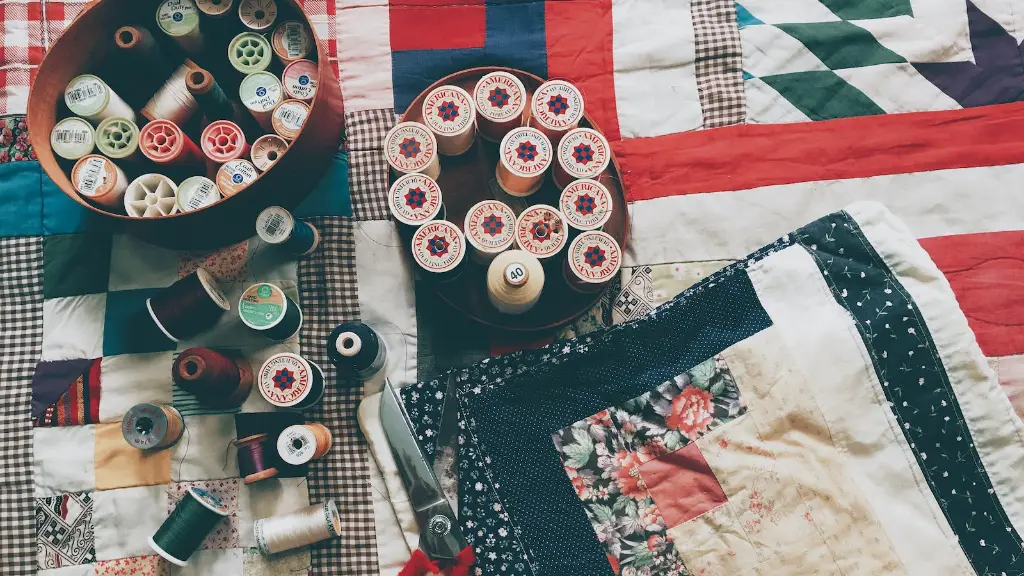If you’re looking to buy needles for your sewing machine, there are a few things you should keep in mind. First, you’ll need to know what kind of needle your machine uses. Most machines use standard needles, but some may require a specific type. Second, you’ll need to decide what size needle you need. The size will be determined by the project you’re working on and the type of fabric you’re using. Finally, you’ll need to choose a brand that you trust. There are a lot of different brands out there, so it’s important to do your research and find one that you’re comfortable with.
If you’re looking for needles for your sewing machine, you’ll need to visit a sewing or fabric store. You can also find needles online at sewing supply websites.
How do I know what needle to buy for my sewing machine?
If you’re not sure what size needle to use for your project, a good rule of thumb is to go with the smaller size if you’re using a light fabric, and the larger size if you’re using a heavy fabric. The type of thread you’re using can also influence your choice of needle.
This is good to know in case you ever need to purchase a new sewing machine needle. You can be sure that no matter what brand you buy, the needle will be compatible with your machine.
What size needle does my sewing machine take
Sewing machine needles come in a variety of sizes, each suited for different fabrics and thicknesses. The two most common systems are the American and European size systems.
The American system uses numbers 8 to 19, with 8 being a fine needle and 19 being a thick, heavy needle. European sizes range from 60 to 120, with 60 being a fine needle and 120 being a thick, heavy needle.
When choosing a needle size, always start with the recommended size for your fabric and adjust as needed. A needle that is too small can cause skipped stitches, while a needle that is too large can damage the fabric.
Different types of needles are available for different purposes. Universal needles have a slightly rounded point and are good for general sewing. Ballpoint needles have a rounded point so that they can easily pass through fabric ends rather than pierce them. Quilting needles are sharp and have a small eye so that they can be used for quilting and piecing. Leather needles have a sharp point and a large eye to accommodate thicker thread. Denim needles have a sharp point and a reinforced shaft to sew through thicker fabric. Topstitching needles have a sharp point and a large eye to accommodate thicker thread. Stretch needles have a special coating to prevent skipped stitches when sewing on stretchy fabrics.
What needle is ideal for beginners?
Bamboo needles are a great choice for beginners as the stitches don’t slide off as easily as with other materials. They’re also comfortable to hold and won’t slip away like plastic or aluminum needles.
It is generally recommended that you use a new needle for every new sewing project. This is because the average lifespan of a sewing needle is only between 6 and 10 hours. This can vary depending on the thickness of the fabric being used. So, if you are working on a project that will take multiple days to complete, it is best to use a new needle each time you start sewing.
Is it easy to replace sewing machine needle?
If you’re looking to get the best results from your sewing machine, it’s important to change your needle regularly. A dull or broken needle can ruin your fabric and cause stitches to skip or bunch up. By changing your needle often, you can avoid these problems and keep your sewing neat and professional.
If you’re looking for a machine quilting needle that can handle thick layers and intersecting seams, the Quilting Machine quilting 75/11 and 90/14 needles are a great option. These needles have a sharp, tapered point that can easily penetrate through layers of fabric, making them ideal for piecing quilts and machine quilting.
What happens when you use the wrong size needle sewing machine
It is important to use the correct needle for your machine, fabric, and thread to avoid damage. Using the wrong needle can damage your machine’s timing, your fabric, shred the thread, and destroy your bobbin hook. Be sure to consult your machine’s manual for the correct needle type and size.
The first number on a needle label is its gauge—how thick the needle is. Higher numbers mean thinner needles. The second number on the label is how long the needle is.
How do I know what size my needle is?
When measuring the diameter of a needle, it is best to place it between the hash marks on a ruler. Count how many lines it falls between and remember that the metric system works in 10s. This means that one centimeter is equal to ten millimeters.
Different types of fabrics require different types of needles in order to achieve the best results. Universal (Style 2020) needles are used for all woven fabrics. This needle will penetrate the fabric threads of woven fabrics. Ball Point (Style 2045) needles are used for sewing on knits; the rounded tip allows the needle to pass between the fabric threads by separating them.
Which size needle is most commonly used
21g needles are the most common gauge of needles used for routine blood draws and venipuncture. They are also the needle of choice for most intramuscular injections. 21g needles are thin, but not too thin, and are just the right size for most people.
Sewing machine needles are not all universal and interchangeable. There is a universal type of sewing needle that works great for many projects, but selecting the best needle for your project may mean choosing a sharp or ballpoint needle instead for better results.
What are the best needles to use?
There are a few factors to consider when choosing the best hand sewing needles for your needs. The type of fabric you’ll be working with, the size of the needle, and the type of stitches you’ll be doing all play a role in deciding which needle is best for you.
Singer Assorted Hand Needles are a good choice for general sewing on a variety of fabrics. The needles come in different sizes, so you can choose the one that’s best for the project you’re working on.
Dritz Hand Needles are great for working with delicate fabrics. The needles are very thin, so they won’t damage the fabric. They’re also available in different sizes, so you can choose the one that’s best for your project.
AEHO Crafts Large Eye Stitching Needles are perfect for working with thicker fabrics. The large eye makes it easy to thread the needle, and the thicker needle is less likely to break when sewing through multiple layers of fabric.
Clover Gold Eye Embroidery Needles are perfect for embroidery projects. The gold eye is easy to see, making it easy to thread the needle. The needle is also thin, so it won’t damage the fabric.
John James
The smaller the needle, the less pain you feel. It’s that simple. When a dentist uses a small diameter needle, they are doing so because they believe that their patients will feel less pain. This is a widely accepted practice and it is backed up by research. If you are ever in a situation where you need to have dental work done, make sure to ask for a small diameter needle. It will make the experience much more pleasant.
Final Words
There is no definitive answer to this question as it will depend on the specific type of sewing machine that you have and the type of needles that it uses. You may be able to find the needles that you need at a local sewing or fabric store, or you may need to order them online.
There are a few things to keep in mind when purchasing needles for a sewing machine. The first is the size of the needle. The second is the type of needle, which is determined by the fabric being sewn. And the last is the price.
When it comes to size, the most common needle sizes are 60/8, 70/10, and 80/12. The number in front of the slash corresponds to the European size, while the number after the slash is the American size. As for type, there are three main types of needles: universal, ballpoint, and stretch.
Universal needles can be used on a variety of fabrics, from wool to cotton to linen. Ballpoint needles are designed for knit fabrics, as they create less friction and thus prevent fabric from laddering or runs. Stretch needles, as the name suggests, are made for stretchy fabrics like Lycra or spandex.
As for price, needles can range anywhere from $2 to $20 for a pack of 10. Ultimately, it all comes down to personal preference and what works best for the project at hand.
